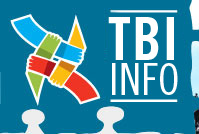You are here : Home > Library > Resilience > Definitions/Theories > 2006 > Chan, C. L. W., T. H. Y. Chan, et al. (2006) The Strength-Focused and (...)
Chan, C. L. W., T. H. Y. Chan, et al. (2006) The Strength-Focused and Meaning-Oriented Approach to Resilience and Transformation (SMART): A body-mind-spirit approach to trauma management, Social Work in Health Care 43(2/3): 9-36.
This article introduces the Strength-focused and Meaning- oriented Approach to Resilience and Transformation (SMART) as a model of crisis intervention, which aims at discovering inner strengths through meaning reconstruction. Limitations of conventional crisis management and current findings in post-traumatic growth research are discussed. Instead of adopting a pathological framework, the SMART approach holds a holistic view of health, employs facilitative strategies, and promotes dynamic coping. Intervention components include Eastern spiritual teachings, physical techniques such as yoga and meditation, and psycho-education that promotes meaning reconstruction. Efficacy of the SMART model is assessed with reference to two pilot studies conducted in Hong Kong at the time when the SARS pandemic caused widespread fear and anxiety in the community. Response to potential criticisms of the SMART model is attempted.
Terms of Use | 2007-2008 All rights reserved © INFO-TBI. Graphic design : François Ménard | Design : WebConforme

